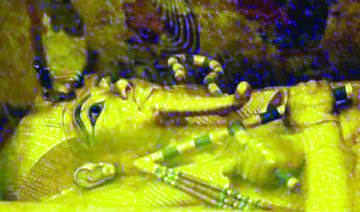DUBAI: World leaders must end the crisis in Gaza by addressing the source of the problem and establishing an independent Palestinian state, Turkish President Recep Tayyip Erdogan has said.
“We need accurate diagnosis to come up with the right treatment. If we cannot diagnose a problem at its source, there will be no solution,” Erdogan said during an address as the guest of honor at the World Governments Summit in Dubai.
“Without an independent Palestinian state, we will never be able to find a temporary solution.” He added: “Every step taken will remain incomplete unless an independent, sovereign, and geographically integrated Palestinian state is established within the 1967 borders, with East Jerusalem as its capital.”
The Turkish leader refuted claims that the Hamas-led Oct. 7 attack acted as the source of the crisis, highlighting the long Palestinian struggle against injustice and the expansion of Israeli territory since 1948.
Settlements on occupied lands in contravention of UN Security Council resolutions show that “Israel deems itself above international law and for many decades now, occupation, illegal settlements and massacre policies have been sustained,” Erdogan said.
The Gaza conflict is an example of what happens when critical issues are left unresolved, he added.
“Every outstanding incident that was not settled became greater in time, more intertwined into a gridlock and resurrected over and over again. Anything we sweep under the rug remains unsettled.”
Erdogan’s comments came as Israel, despite global outcry, gears up for a ground offensive in Rafah, where some 1.4 million displaced Palestinians have crowded in hope of finding shelter. The war on Gaza has so far killed more than 28,000 Palestinians, wounded 70,000 others, and flattened the enclave into a land of debris.
The Turkish leader urged the creation of an independent Palestinian state within June 1967 borders. This would achieve regional peace, stability and economic development, Erdogan said, calling for effective global governance, solidarity and cooperation “if we want to identify a prospective future for our world.”
Governments must support the UN Relief and Works Agency for Palestine Refugees in the Near East amid funding cuts from some European countries, he added.
UNRWA serves “as the lifeline” for about 6 million Palestinian immigrants in Jordan Syria, Lebanon and the occupied lands of Palestine, Erdogan said. “I am making the call as a leader of a country that has opened its doors, decades ago, for Jewish immigrants escaping European incursions,” he added.
Turkiye is now treating 380 Palestinian patients and hosting 344 of their family members who were evacuated from Gaza, Erdogan said, adding that his government is following up on the application of international law in the International Court of Justice over alleged Israeli war crimes.
“We will never abandon our Palestinian brothers and sisters. We will never leave them alone and without hope,” said Erdogan, thanking South Africa for its activities in the ICJ.
On international challenges, the Turkish president said that a cycle of crises and tensions now defines the world, referring to the eruption of the Russia-Ukraine war as the world was reeling from the COVID-19 pandemic.
The war has impacted the global economy by creating energy price inflation, food crises, irregular migration and new challenges, he said.
Erdogan called for global commitment, patience and collaboration to face these emerging challenges.
The Turkish president was among 25 heads of state taking part in this year’s WGS, which runs until Feb. 14, bringing together more than 85 international and regional organizations and global institutions, 140 governments, and global thought leaders and experts.
More than 200 prominent speakers are addressing global future trends during more than 110 sessions. WGS 2024 boasts over 4,000 attendees, as well as more than 23 ministerial meetings and executive sessions attended by more than 300 ministers.























